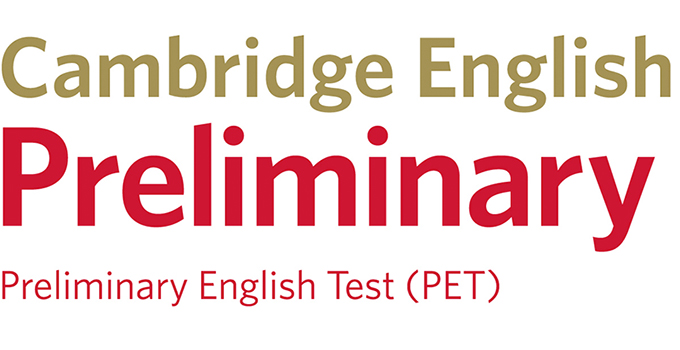PET/KET
What is KET exam?

The Key English Test (KET), PET, and FCE are exams jointly organized by the Ministry of Education Examination Centre and the Cambridge University Local Examinations Board in the UK. This series of exams is a proficiency test aimed at comprehensively testing candidates' English proficiency in listening, speaking, reading, and writing. Provide a standardized certificate of achievement issued by the Cambridge University Local Examinations Board to those who pass the exam.
The Cambridge English Proficiency Test (MSE) series assesses general English skills from beginner to advanced levels. KET is the first level of this series, which is equivalent to the A2 level of the European Language Curriculum developed by the European Commission.
KET can lay a solid foundation for candidates who wish to take the Cambridge English Proficiency Test (PET) and other Cambridge ESOL exams. KET is also a preparatory exam for the Cambridge Certificate of Business English (BEC) exam.
The English Proficiency Test (KET) is an exam designed for English learners with a basic level of proficiency. Students who have reached KET level should possess basic language skills for communication or work in English speaking countries, such as providing and understanding personal information, asking for directions, etc. More than 40000 people from over 60 countries take the KET exam every year. This exam assesses the level of basic language proficiency, which is valuable for practical work and social activities.
What is PET exam?

The PET exam (also known as Cambridge English: Primary English Test or PET) is one of the "Cambridge General Test Band 5" designed by the Cambridge English Language Assessment at the University of Cambridge. The Cambridge General Test Band 5 consists of five levels, each with similar characteristics but designed to test the English proficiency of candidates with different levels of English proficiency.
PET assesses candidates' practical English skills, which can promote the development of their language abilities in both learning and work, and lay a solid foundation for candidates who wish to take the Cambridge First Certificate English Examination (FCE). The PET computer exam has also been launched globally.
Corresponding to the Common European Framework for Language Teaching and Testing, the European Framework for Language Teaching and Testing (CEF) provides a detailed description of the language proficiency and actual communication skills of candidates from low to high. Describe the typical abilities that candidates possess in listening, speaking, reading, and writing skills, such as "being able to introduce themselves" and "being able to use language flexibly and effectively in social, academic, and work environments. CEF divides language proficiency into three levels:
A (Basic user) basic level
B (Independent user) independent application
C (Proficient user) proficient in using
Each level is divided into 2 levels: A1, A2, B1, B2, C1, and C2.
The PET exam meets the B1 level of the European Language Teaching Syllabus designated by the European Commission. At this stage, candidates are able to:
1. Use clear and standard language to explain familiar topics related to work, study, or hobbies.
2. Able to handle general situations that may occur while traveling in English speaking countries with ease.
3. Narrate the experience or describe dreams, hopes, and goals.
4. Elaborate and demonstrate the plan